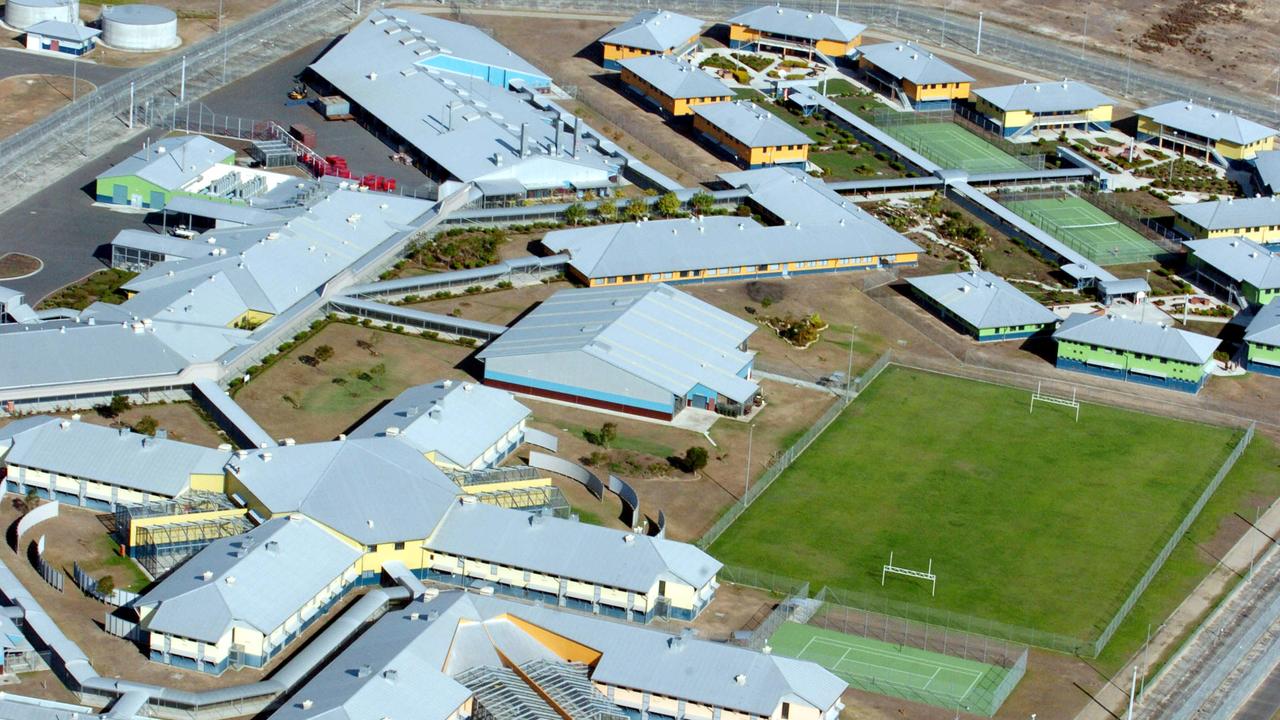Wolston Correctional Centre in lockdown after guard tests positive to Covid-19
A major Brisbane prison is in lockdown after reports a custodial corrections officer has tested positive to Covid-19.
Police & Courts
Don't miss out on the headlines from Police & Courts. Followed categories will be added to My News.
A MAJOR Brisbane prison is in lockdown after reports a custodial corrections officer has tested positive to Covid-19.
The officer, who works at Wolston Correctional Centre in Wacol had come into contact with a number of officers and prisoners during multiple shifts earlier this week.
Call for young offenders to be released from prison before the virus hits
Super spreader: 24 test positive for virus after birthday party
Woolies cuts hours at nine Queensland stores
Qld COVID-19 hot spots – Where are they?
Queensland coronavirus case and death totals
In a statement, Queensland Corrective Services said the worker and his family were being offered support, while the centre worked with Queensland Health to follow correct protocol.
“Wolston Correctional Centre has been placed into lockdown, and all staff are being individually contacted,” the statement said.
“We are seeking urgent advice from Queensland Health on the next steps to minimise the potential impact of this incident.”

The Wacol facility, which can hold up to 600 prisoners, is now undergoing a forensic clean of all areas attended by the infected worker.
Queensland Corrective Services said they will facilitate the testing and isolation of anyone who may meet the threshold for requiring a test.
“We will continue to follow the advice of Queensland Health on the appropriate response going forward, and officers and prisoners will be informed as more information comes to hand,” the statement said.
The news comes as many, including high-profile Brisbane Lawyer Debbie Kilroy, call for those in custody to be released amid the pandemic.
“Being remanded or sentenced to a prison term is not a death penalty in Australia,” Ms Kilroy, who contracted the virus 12 days ago wrote on Twitter.
“When COVID-19 hits our prisons, many will die. We must release people now before the virus hits. Prisons are incubators of disease.”
New South Wales Corrective Services Commissioner Peter Severin may soon be allowed to grant parole for some of the state’s 14,000 prisoners in an effort to slow the rate of infection.
The new powers, which remain under review to be considered by Parliament, will allow Correction NSW the ability to release low risk prisoners back into society.
Introducing the bill to parliament on Tuesday, Attorney General Mark Speakman said the parole would help keep inmates and staff safe.
“The bill seeks to provide us with powers we’ll hope we never have to use but the evolution of the pandemic may require it,” he said.
“This flexibility is needed to give the commissioner the capacity to protect the health of inmates and correctional services staff and ensure the good order and security of correctional premises through the emergency.”
Under the legislation, inmates sentenced for serious crimes including murder, rape and terrorism related offences would not be released.
Queensland previously banned in-person visits to prisons to mitigate the spread of the virus, however it’s understood there are no current plans to release inmates in Queensland prisons.
The Together Union, which represents prison officers, had raised concerns earlier this week about the potential spread of the virus in jails.
“Bit late for planning,” an officer said.
“We need to see actions before there are large numbers of deaths in custody and officers at risk.”
When asked yesterday about what processes corrective services had in place to combat the spread of the virus, including whether prisoners would no longer be transferred, a QCS spokesman referred to a lengthy statement from Commissioner Peter Martin posted online.
As part of its “Stage 2” response to the virus, family and friends have already been banned from visiting.
“As this pandemic progresses, we are poised to move to Stage 3 restrictions, which will see all visits, including from legal representatives cease, but daily activities, including industries, education and out of cell time continue to the greatest extent possible,” Mr Martin wrote.
“My hope is that we are many weeks away from implementing this Stage, but we will be guided by the advice of the health experts.
“Finally, if and when necessary, we are prepared to adopt Stage 4 restrictions, and fully lockdown prisons, ceasing non-essential out of cell time and movements within the prisons, to allow us to operate the prisons on a dramatically reduced staffing group. “This is obviously a last resort, but we are prepared for the eventuality.



